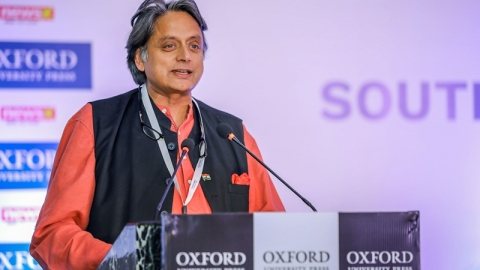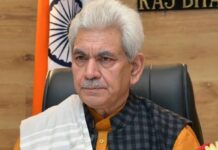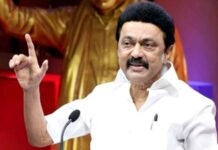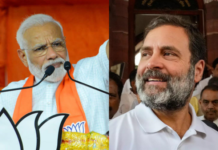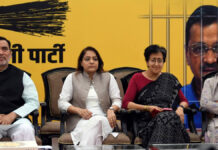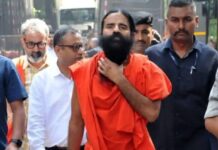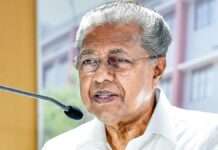NEW DELHI: Senior Congress leader and parliamentarian Shashi Tharoor Thursday lamented that politics as a profession in the country has “not been very representative of the youth” despite India having an overwhelmingly young population.
Addressing a keynote address at an event here, he said, “Politicians talking about youth has become a rather awkward and exasperating cliche in today’s time, particularly, politicians of a certain age.”
“And, the inescapable fact is that politicians generally in India, and political class as a whole have not been a very welcoming profession for the youth in the country for a number of reasons,” the Thiruvananthapuram MP said.
In his speech at the seminar marking 150 years of Mahatma Gandhi and 100 years of Nelson Mandela, he also said that both the leaders recognised the value of youth, “not in a patronising or idealistic manner” but as “real, significant advantage” that they represent to any country.
“India is a country where about 65 per cent of the population is under 35 years. Now, let us turn to the temple of democracy, Parliament, and only 2.2 per cent of all parliamentarians are below 30. And, one in every four MPs are below 45 years,” Tharoor said.
He said the 16th Lok Sabha saw the “lowest number of MPs” in the entire age group of 25-40, adding that the 2014 election saw the highest number of young votes ever participating in the electoral exercise.
Tharoor said India held the “dubious record” of having the “biggest gap” in the world between the average age of the population and the average age of a cabinet.
“Not sure, if we have successfully bridged that gap very much, but things have marginally improved. The average age in Parliament has dropped slightly, we have MPs aged 28 and 27 years,” he said.
“But, politics as a profession in the country has not been very representative of the youth. And, the irony particularly is stark when an overwhelming number of youths are part of India’s population right now,” Tharoor said.
The Lok Sabha MP emphasised that 55 per cent of the population is under 25, and 65 per cent of them under 35.
“We are looking at a young country, and people representing them being much older than them,” he said.
Adding a dash of humour, Tharoor quoted former Prime Minister Atal Bihari Vajpayee that “a politician in India is born at the age of 50, becomes a teenager at 60, and a youth icon at 70”.
“We need to cater to dreams, hopes, aspirations of the youth, many of those who are in many ways the heart of young India. I had challenged the ruling party in Parliament on the Budget speech, that who’s the ‘New India’ for if not for the young,” he said.
Asserting that the demographic dividend has sort of “become a cliche” today, he pitched for training and skilling a greater number of youths, equipping them with tools to enhance their employability.
“Because, if youths are not trained and skilled, they will not be able to translate their youthful energy into anything globally productive,” Tharoor said.
“They (youth) are recognised as important contributors (to the country). The challenges they face to eventually become heroes of the country’s growth story are many, but not insurmountable, if the right efforts are made,” he said.
Tharoor in his keynote address titled ‘How the lives of Mahatma Gandhi and Nelson Mandela are relevant and source of inspiration for today’s youth’ said the entrepreneurial spirit of the youth must be harnessed to make them part of India’s growth story.
The event — Gandhi Mandela Peace Initiative — was organised by Believe Foundation and attended by a number of noted personalities.
BJP’s young MP from Bangalore South, Tejasvi Surya also attended a panel discussion at the event.
“(PM) Modiji has already spoken of a ‘New India’ and that is young India and equal India, that is based on merit,” he said on the sidelines of the event.
Asked what the youth of India can learn from Gandhi and Mandela, he said, “Being acceptive of all, take everyone along and being truthful”.
Chairman of Godrej Group, Adi Godrej in his keynote address in another session on Gandhi’s concept of education highlighted the challenge faced in the sector in India.
“We have two major challenges, inclusivity and quality of education, and as a country, we have to strive to ensure education for our children, many of whom are currently deprived of it,” he said.
Godrej said education is “indispensable” for a society that is tolerant and peace-loving. PTI

